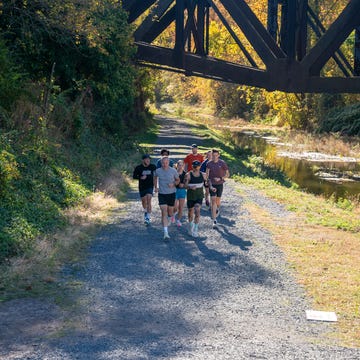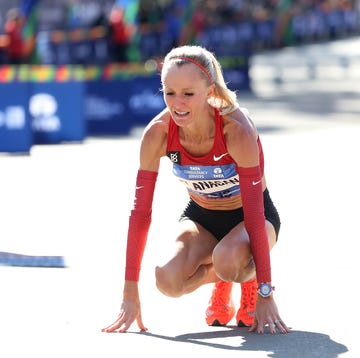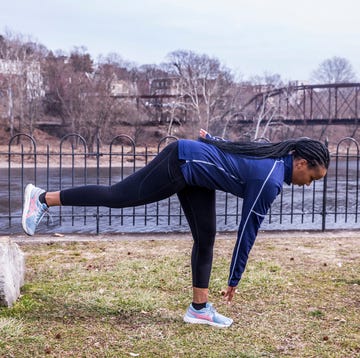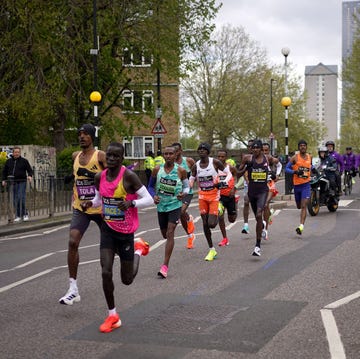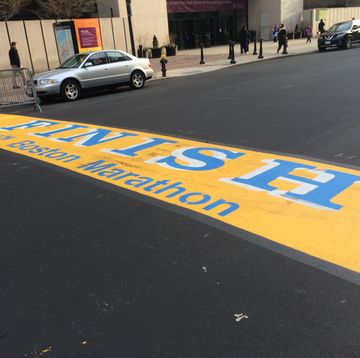On February 9, Kentucky junior Cally Macumber deployed a fearsome kick to win the 3,000m at the UW Husky Classic in Seattle in 8:59.98, which shattered the school record that had stood for 24 years. Running most of the same race alongside Macumber was her teammate and training partner, Chelsea Oswald, who crossed the line eighth in 9:06.64, 43 seconds better than her 3K personal best entering this indoor season.
Their performances are a sign of renewed excellence in Lexington. A quarter century ago, the University of Kentucky women’s distance program was arguably the NCAA’s finest. The team brought home a national cross country championship in 1988, followed by a runner-up trophy the next year. But the program experienced hard times of late, finishing eighth at the SEC cross country championships in 2009, 2010 and 2011.
The recent performances by Macumber and Oswald signal the resurgence of a once-proud program. In July, Stanford head coach Edrick Floreal was hired to take over at Kentucky, replacing longtime UK coach Don Weber, who was retiring. Weber produced nearly 200 NCAA All-Americans and claimed 7 SEC cross county team titles as well as the 1988 NCAA cross county team championship and 1989 runner-up trophy.
A two-time Olympian for Canada in the triple jump, Floreal had served as a UK assistant from 1995 to 1997 and was eager to return to the SEC. Making the move to Lexington with Floreal were three of his Cardinal assistant coaches, including 2009 Stanford grad Hakon DeVries, a two-time All-American on the track, who now works with UK women’s distance runners.
“We all got here around the second week of August and hit the ground running,” DeVries says about the hectic late summer transitional period. “I don’t think I was here three weeks before the first race.”
In taking stock of the women’s cross country team, DeVries felt there was tremendous potential but saw that a different training approach was needed. Almost everyone on the team, he determined, was undertrained.
“We spent the August period and most of September getting the girls accustomed to doing strength-based workouts with short rests,” DeVires explains. “It was work that they hadn’t previously been exposed to, so there was a little bit of a learning curve. We stepped their mileage up a fair amount, too.”
Oswald, for example, had previously topped out at about 50 miles a week but hit 65 to 70 miles last fall. Because she has been susceptible to injury, the increased volume was a concern for her as well as DeVries. “We’re very cautious,” he says. “I don’t get greedy with recovery days and we utilize the AlterG on occasion, and we make sure she gets some days completely off.” Oswald stayed healthy and overall the women Wildcats took to the transition well.
DeVries had most of his varsity athletes run a full seven-meet schedule, more competition than many top college runners get during the fall. “I needed to get them out there racing, to really instill the confidence that the fitter we get, even though the competition gets better, we’ll still be able to be at the front,” he says. “It was definitely cool when it really did click at SECs, where Cally and Chelsea went 1-3. It was like, ‘Oh, we’re actually pretty good, aren’t we?’ And I was like ‘Yeah, I’ve been trying to tell you that.’”
The Kentucky women finished fifth at the SEC Championships, a step in the right direction. Two weeks later at the Southeast Regional the team vaulted from 12th in 2011 to a fourth-place finish. Macumber and Oswald again went 1-3 to advance to nationals in Louisville, while juniors Allison Peare and Anna Bostrom finished 22nd and 23rd to garner All-Southeast Region Team honors. (Peare improved her regionals finish by 80 places and Bostrom jumped 50 places.) At nationals Macumber and Oswald both ran personal bests for 6K cross country to claim All-American honors. Macumber was sixth in 19:42 and Oswald was 37th in 20:13.
After a short November break, the Kentucky distance runners began focusing on the indoor season, and DeVries believed that Macumber and Oswald should again take aim at progressing to nationals. “It’s hard for them to hide their talent now,” he says with a laugh, “and I expect them both to make NCAAs, indoors and outdoors.”
The brief indoor season affords few racing opportunities and DeVries instructs his athletes to take to the track with a purpose, meeting an objective with every indoor race, whether it’s hitting a certain time or scoring points if it’s the conference meet.
The times Macumber and Oswald put up at the Husky Classic appear likely to hold among the top 16 nationwide to qualify them to compete at NCAAs. Macumber moved into the No. 3 spot with her 8:59.98 (behind only Abbey D’Agostino of Dartmouth and Jordan Hasay or Oregon) while Oswald’s 9:06.64 secured her the No. 10 position. DeVries was ecstatic about the way both athletes performed in a competition that was all about running as fast as possible. “Cally had a great kick to win, and Chelsea’s PR was like 9:50 coming into this season and she ran 9:06, so it’s pretty ridiculous to think about,” he says.
The continued improvement extends throughout the UK distance corps. Bostrom recently ran a new 3K PR of 9:48.35 at the Tyson Invitational, some 44 seconds faster than her season best last winter. Peare’s 2:09.04 for 800m at the same meet was an indoor PR for the middle distance specialist who has run 2:06.03 outdoors.
The new coach clearly appreciates his athletes’ willingness to adjust to a more demanding approach, and he also likes the atmosphere in Lexington, where UK sports are on just about everyone’s mind. “The way the athletic department is received in the community is great,” DeVries says. “There isn’t a pro team in the state of Kentucky, so they love their UK basketball and they love their UK track and field and their UK football and UK everything. The fact that you’re part of the UK athletic department means the entire state is behind you.”
All those fans would certainly like to see the Kentucky women’s distance program return to the glory days of the late 1980s. “History shows me it’s possible to win national championships here,” DeVries says. “We’re a long way from that, but if it’s been done before, there’s no reason it can’t be done again.”
RELATED ARTICLE: 5 Minutes with Cally Macumber and Chelsea Oswald



